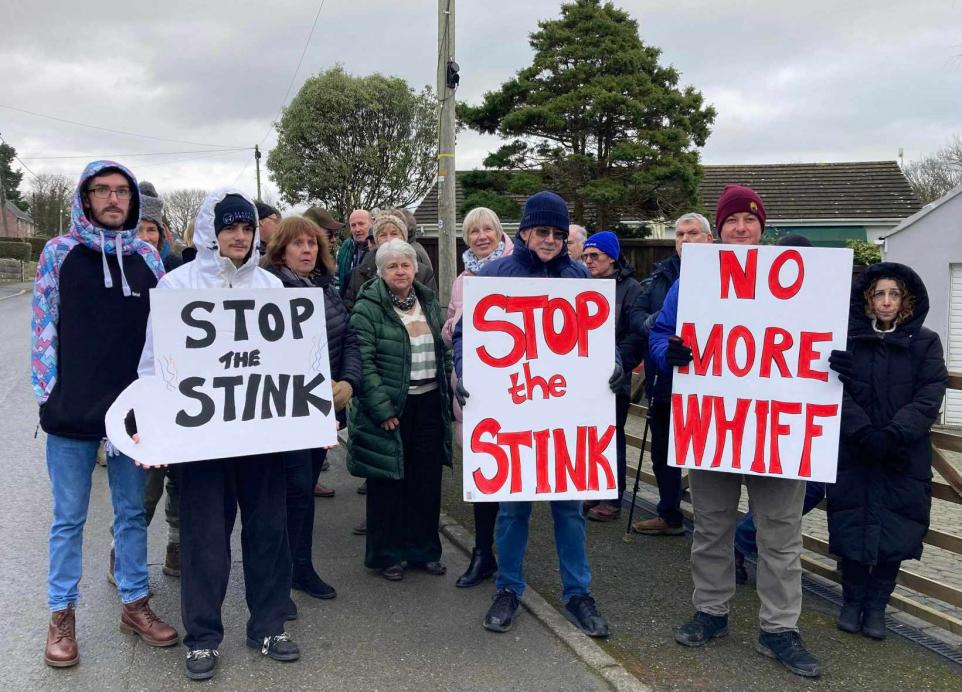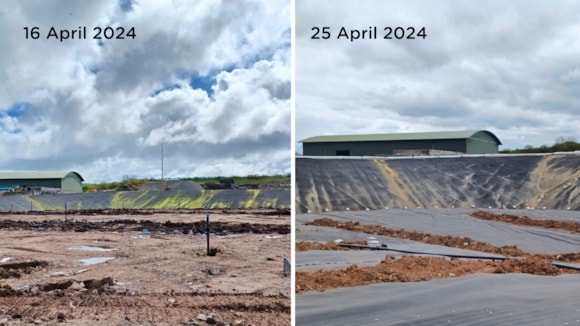News
Child cruelty offences in Wales increase by more than 50%
 THE NUMBER of child cruelty and neglect cases recorded by police in Wales has risen by 53% in the last year, the NSPCC reveals today.
THE NUMBER of child cruelty and neglect cases recorded by police in Wales has risen by 53% in the last year, the NSPCC reveals today.
The charity’s annual child protection review – How Safe are our children? – shows parents or carers were reported in connection with 415 offences in 2014-15 compared to 272 in 2013-14.
The increase in recorded cases is reflected in the number of calls made to the NSPCC helpline about children suffering neglect. Last year there were over 16,000 contacts to the UK-wide helpline.
Adults called with fears about children who were hungry and dirty, while other contacts reported parents who were drunk or left their children to fend for themselves.
Research has proven that emotional neglect, where children are ignored and not given the love they need, is increasingly becoming more common.
Neglect remains the most common reason for a child to be placed on the child protection register (CPR) in Wales, with 40 per cent of registrations at 31 March 2015.
In a bid to tackle neglect NSPCC Cymru was commissioned by the Welsh Government to deliver the Welsh Neglect Project. The project aimed to improve multi-agency responses and services for neglected children and their families.
The children’s charity is now calling for an enhanced health visiting service and family support programmes to ensure children’s needs are met and address issues early.
Des Mannion, head of NSPCC Cymru / Wales, said: “It is always worrying when statistics show cruelty and neglect offences are increasing, although one reason could be that the police, public and professionals are better at recognising the various forms of neglect.
“Neglect remains the most common reason for a child to be placed on the child protection register and is still an under-recognised and under-reported issue that often doesn’t come to the attention of police and social services. This means that the number of children suffering from abuse and neglect could be far higher.”
Peter Wanless, CEO of the NSPCC, said: “Neglect is the most common form of abuse in the UK and can wreak havoc on a child’s brain development, emotional well-being, ability to form relationships, and mental health. These children are more likely to suffer from depression and post-traumatic disorder, and even suicidal thoughts. For some, neglect can be fatal.
“These levels of neglect simply do not belong to the 21st century. It’s an unacceptable situation which must be remedied. And we can only do that by looking out for vulnerable children and making sure that they are given the right support to prevent longer term damage.”
It’s unclear why the recorded cases have risen so dramatically, but greater public awareness and improvements in how police record offences could be factors.
The most likely cause is that more children who are experiencing cruelty and neglect are now being identified, particularly now that emotional neglect is better recognised and the Serious Crime Act 2015 was changed to include psychological harm
One 14-year-old boy who called the NSPCC’s ChildLine service said: “I know it sounds disgusting but sometimes I feel like eating pet food because it’s all there is in the house. But I just drink water to make me feel full- up instead. My teacher has asked why I’m dressed in dirty clothes and why I never have any lunch money and I don’t know what to say. I feel angry at my parents because they don’t seem to care how miserable it’s making me. If I ask them for anything they become really angry and hit me. Sometimes I feel killing myself will be the only way out.”
Another 13-year-old told how he was forced to steal because he was so hungry: “My mum goes out every weekend to the pub. She doesn’t seem to care about me or my brother. There is never any food at home and when we ask for something to eat she gives us cereal. I’m always feeling tired and can’t concentrate – I only ever think about food when I’m at school. Sometimes I steal packed lunches from the other kids because I know I probably won’t get anything at home. I don’t know if my life will ever change but I can’t live like this anymore.”
The NSPCC is running a campaign – It’s Time – which is calling for all child victims of abuse to be given timely, appropriate therapy to help them overcome their traumatic experience and rebuild their lives.
Business
Largest Welsh port appoints communications and marketing director

THE Port of Milford Haven has announced that Anna Malloy has been appointed as its first Communications and Marketing Director.
Anna is appointed to the Senior Management Team and this new role will be pivotal to the delivery of the Port’s long-term growth and diversification agenda and in ensuring that its obligations to coastal communities, future generations and to nature are honoured.
Tom Sawyer, CEO of the Port of Milford Haven, congratulated Anna and said: “Anna has a key role to play in our future and it’s doubly lovely to see ‘port-grown-talent’ flourish and for colleagues to progress up through our organisation.”
Anna will lead across the public affairs, marketing, sustainability, media relations, and community relations activities. She will therefore play a central role in the development of new and existing partnerships, including the Celtic Freeport, the Milford Haven Energy Cluster and the Celtic Collection; sitting alongside the delivery of major projects like Milford Waterfront and the Pembroke Dock Renewables Terminal.
“This is such an exciting opportunity. I am proud to be joining the Senior Management Team and look forward to delivering our ambitious strategy,” commented Anna Malloy, Communications and Marketing Director.
She added: “The Port of Milford Haven is playing a key role in the transition of South-West Wales’ economy to a decarbonised future. A beautiful place, with great people, that I am privileged to call my home.”
Community
First deadlines met following enforcement action at landfill site

THE first set of deadlines for the completion of actions to tackle the ongoing odour issues at Withyhedge Landfill in Pembrokeshire have been met, one week on following the issuing of further enforcement action by Natural Resources Wales (NRW).
NRW issued site operator Resources Management UK Ltd (RML) with a further Regulation 36 Enforcement Notice on Thursday 18 April.
This outlined a series of actions to be completed by specified deadlines to address the ongoing odour and landfill gas emission issues at the site.
During the latest site inspection which took place yesterday (Thursday 25 April), NRW was able to confirm that three actions have been completed – two ahead of the imposed deadlines.
The operator has installed 24 pin wells, which have been driven into the waste in the lower section of the cell identified as causing the odour issues (Cell 8). These have also been connected to the landfill gas extraction system.
Capping material has been placed over the same area of the cell and welded to the basal liner to encapsulate gas in this area, allowing for extraction by the pin wells and four horizontal gas wells, which were previously installed.
While progress is being made, NRW officers detected strong landfill gas odours during an offsite assessment on Wednesday (24 April) in Poyston Cross and Crundale. Weather conditions this week appear to have led to a wider spread of landfill gas to surrounding areas, not solely linked to wind direction.
NRW odour assessments follow a set route around the landfill, with designated survey spots, identified to enable consistency of assessment and reporting. This is essential to ensure the regulatory and enforcement responses where there is offsite odour attributed to the landfill is robust.
The remaining Regulation 36 Notice actions will require significant effort by RML to ensure they are completed on time and NRW continues to closely monitor progress.
Clare Pillman, Chief Executive of NRW, met with representatives from NRW’s South West Industry Regulation Team and Pembrokeshire County Council during a visit to Pembrokeshire on Thursday 25 April.
Clare Pillman, Chief Executive, Natural Resources Wales, said: “While visiting the area surrounding Withyhedge Landfill with our regulatory team and partners from Pembrokeshire County Council this week, I was able to see and hear for myself just what people living and working in these communities have had to endure as a result of the odour issues from the site.
“What they have been experiencing is unacceptable and our officers have been working tirelessly alongside colleagues at Pembrokeshire County Council to ensure the operator gets this under control as quickly as possible. While it was clear that a lot of work has been done on site, there is still more to do to ensure they address all the actions set out in the enforcement notice.
“We want to make sure that happens, and are exploring every option together with Pembrokeshire County Council to ensure the operator works quickly to resolve the issues which are clearly affecting the quality of life of people in these communities.”
Huwel Manley, Head of South West Operations, said: “While we are reassured that action is being carried out by the operators at Withyhedge Landfill with a sense of urgency, we are continuing our regulatory presence on site to ensure the operator’s focus remains on tackling the issues that will address the continuing odour issues being experienced by surrounding communities.
“We will be closely monitoring progress over the coming days and weeks to ensure the operator complies with all the actions set out in Notice by 14 May. If they are not met, we will pursue additional enforcement action where appropriate.”
NRW requests that instances of odour from the landfill continue to be reported via this dedicated form: https://bit.ly/reportasmellwithyhedge or by calling 0300 065 3000.
Please report odours at the time of them being experienced, rather than historically. Reporting odours in a timely manner will help guide the work of partners more effectively, particularly in the further development of air quality monitoring.

Community
Milford Haven’s war memorial is 100 years old today

THE Milford Haven War Memorial, a significant landmark commemorating the fallen heroes of World Wars and subsequent conflicts, marks its 100th anniversary today.
The memorial, which was inaugurated on April 26, 1924 by the Venerable the Archdeacon of St Davids, remains a poignant symbol of sacrifice and hope for peace.
Constructed from 1923 to 1924, the memorial consists of a striking assembly of pink granite and white marble statues that were sculpted in Italy.
Representing the Army, Navy, and Air Force, these life-size statues stand on an unpolished three-step plinth below a main pedestal. A soldier faces west and a sailor east, with an airman atop the central column, surveying the skies.

The names and inscriptions of the fallen are carved into the polished granite shaft, meticulously supervised by surveyor J.P. Morgan with contractor E. Jones of Llanybydder.
Located on Hamolton Terrace with views over the Milford Haven waterway, the memorial is a freestanding structure in an external, roadside setting. It features a serviceman/woman sculpture in marble and Portland stone, set on a concrete base surrounded by railings. Inscribed plaques honour those who served in the First and Second World Wars, the Korean War, and the conflict in Iraq from 2003 to 2009.
The memorial lists the names of 239 men who perished in the First World War on its polished grey granite faces. The Second World War claimed 157 lives from this community, whose names are recorded on bronze plaques around the base. Notably, the memorial also honours one serviceman who fell during the Korean War and another who was killed in Iraq in 2007.
The Milford Haven War Memorial stands not only as a historical monument but also as an enduring reminder of the costs of war and the community’s ongoing commitment to peace.
As the town reflects on a century of remembrance, the hope remains that future generations will continue to cherish and learn from the lessons of the past.

-

 News3 days ago
News3 days agoPolice and air ambulances at ‘serious incident’ at West Wales school
-

 News7 days ago
News7 days ago20mph U-turn: Some roads will return to 30mph following public outcry
-

 Community7 days ago
Community7 days agoMiracle pup finds her forever home after heart-wrenching journey
-

 Crime3 days ago
Crime3 days agoPembrokeshire pensioner accused of 17 sexual offences against children
-

 Crime2 days ago
Crime2 days agoAll three school stabbing victims discharged from hospital, police confirm
-

 Community4 days ago
Community4 days agoCounty Hall to offer space for community banking
-

 Business13 hours ago
Business13 hours agoLargest Welsh port appoints communications and marketing director
-

 Crime5 days ago
Crime5 days agoBrian Davis: Wanted on suspicion of commercial burglary
























